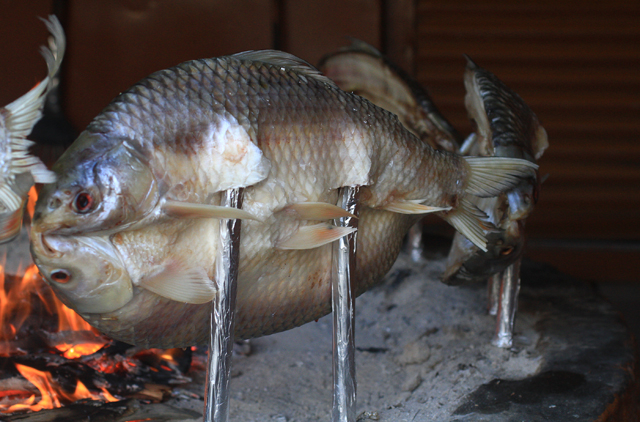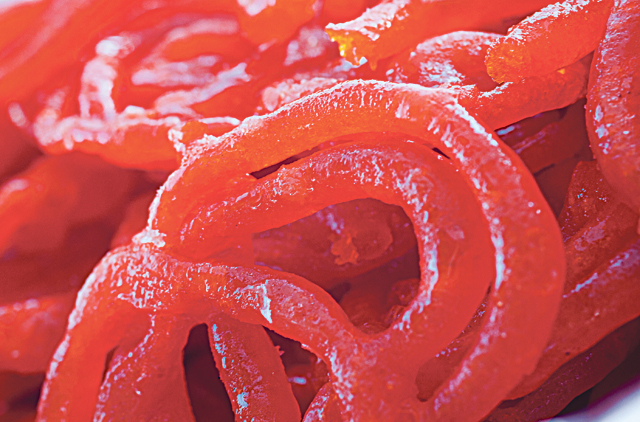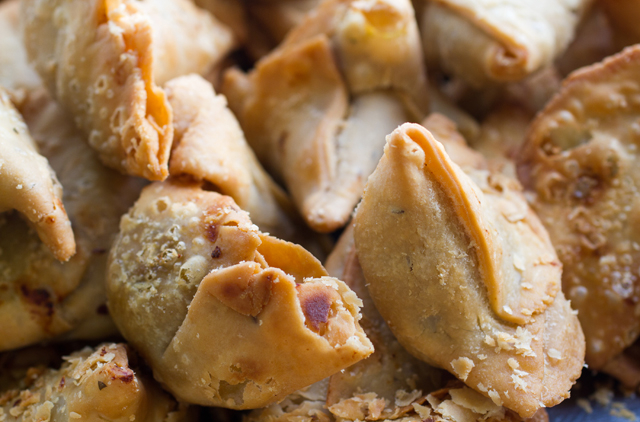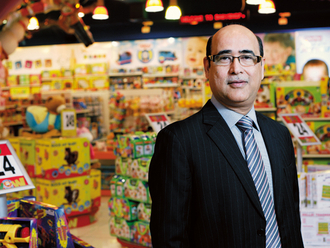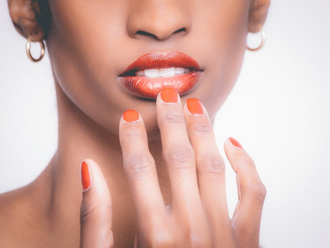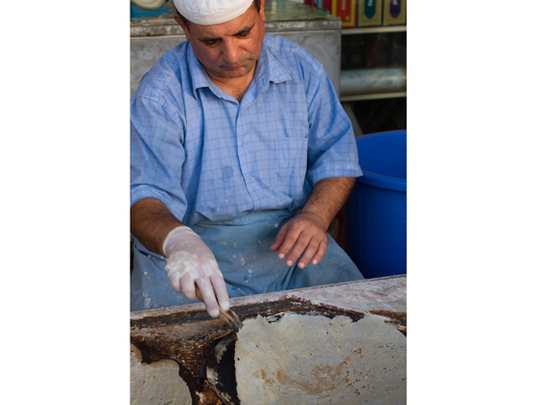
Over nearly two decades in this country, I have been privileged to experience many different iftars (the meal eaten by Muslims after sunset in Ramadan). A cosy ladies' majlis one in Masafi with my Emirati friend Amna, where I stuffed myself senseless with her famed leghmaat (a crispy sweet dumpling), lavish restaurant buffets hosted by Arab or Pakistani colleagues who wish to extend the camaraderie of the workplace, informal canteen affairs, and so on. It's a time when one experiences a true feeling of shared kinship, but it is also followed by moments of regret after one has eaten too many sweets or kababs, with the fervent vow never do so again — until the next invite.
But outside the home and the UAE's famous luxury hotels, Ramadan is a different experience. The true foodie knows that the best way to experience the real city is to cruise the streets and pick up sizzling hot treats around 4pm from the small stalls set up just outside restaurants.
Given the UAE's wide mix of nationalities, there are a variety of snacks and sweets from different countries that appear only during Ramadan, almost like an offering of devotion — at prices that are cheap enough to ensure no one goes hungry.
The best place to start a tour of value-for-money eateries in the UAE is Al Ghusais. Now every nook and cranny around Al Ghusais Mosque is crammed with eateries in a serious competition of sorts. Start with Malabar Restaurant, which offers a mind-boggling variety of wicked snacks from my birthplace Kerala. Start with their spicy chilly bhajjias or fritters, which can make your hair stand on end. Follow with the pazham pori (yellow sweet banana fritters), bonda (potato balls dipped in a chick pea batter and fried), pazham roast (banana fritters stuffed with coconut and sugar) ada and unda (flattened and round rice dumplings stuffed with prawns, meat, fish or coconut), samosas (meat and vegetable) and a set plate (fruit, dates, any one of the above snacks, sherbet and so on for Dh7). Cooking starts as early as 2pm and the snacks hit the counters by 4.30pm. Prices start from Dh1 per piece .
Nearby, the Burj Al Arab restaurant (formerly Gafoorka to old-timers) has the best banana fritters in town but snap them up by 4.30pm because they vanish off the trays even as the waiters fill them.
But being a Mumbai girl, I always like a bit of tang. This is amply provided at the nearby Karachi Darbar, which has some great Punjabi samosas, chana chaat (chick peas with spicy sauces), spicy shammi kababs and dahi bhallas (deep fried lentil balls served in yoghurt). Though I tend to go easy on their sweets, I'd recommend the double parathas (bread with real ghee) that are served only after Maghreb, though everything else is on sale from 4.30pm. Prices again are very reasonable and range from Dh1 upwards. And make sure to check out the Menawa bakery next door, which sells the most amazing breads hot from the oven.
Hor Al Anz and the streets of Al Karama also buzz with little stalls selling similar hot snacks on a very low budget (very similar to Ghusais). So alternatively, go to the opposite end of Dubai and stop by the Al Lehbeeb Grocery, which is located in Jumeirah 3. It offers one of the best reqaqs, a regional crispy bread with a choice of toppings. A single reqaq with egg starts at Dh3 and then prices inch up by one or two dirhams based on whether you want fish sauce, cheese, chips or a mix of them all. These are made and sold within a small enclosure outside the grocery, which has been around for 15 years and is open 24/7 for Ramadan, says the Iranian owner.
Step away from the streets and take time to visit the old Safa Mosque, which offers free iftar, recommends an Emirati friend. As I walked around the pavement taking notes last year, I could see an elderly man sweeping the courtyards of the mosque with a date frond. Men from different countries were bringing huge utensils full of biryani or packs of fruit, water, yoghurt and other snacks as an act of unnamed charity.
Some donors personally serve everyone who sits for the iftar (as with many mosques across the UAE). Thinking that I was hesitant to join the male throng, one of the men walked across and offered to pack me some biryani. It was then that I understood the true spirit of iftar. n
FLAVOURS OF IRAQ: OFF THE BEATEN TRACK
For something off the beaten track, check out Samad the Iraqi restaurant on Muraqqabat Street.
I chatted from Ashraf Abozaid, Executive Chef at Samad who is quite a celebrity within the community.
He dashes around the kitchen supervising a large order of traditional Iraqi kababs. "We always use fresh lamb and not frozen," he emphasises. The buffet costs around Dh120. The counter upstairs for the evening buffet is brimming with baklava (pistachios encased in a filo pastry), basbousa (a semolina sweet) and many other types of sweets, including qatayef (a fried sweet filled with cream or nuts).
The restaurant is renowned for its quosi (stuffed roast lamb) and masgouf (in picture), a traditional slowly barbecued riverwater fish, which has to be ordered an hour in advance. "It is marinated with lemon and garlic and releases its own fat while cooking (priced at Dh65 for a kilogram). At the end of the process, the fish has a great smoky flavour," he says.
One of his favourite sweets is kahi (a traditional sweet similar to baklava but eaten with gaymar (a version of clotted cream) — a reference that sparks a moment of nostalgia. True gaymar, he says, is only available in Iraq.


